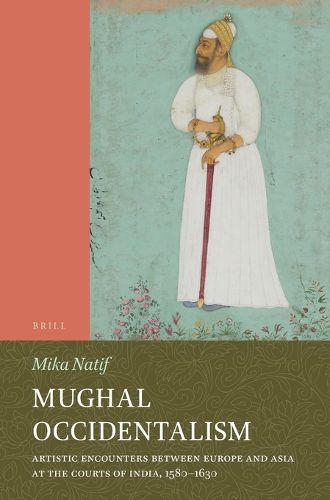Readings Newsletter
Become a Readings Member to make your shopping experience even easier.
Sign in or sign up for free!
You’re not far away from qualifying for FREE standard shipping within Australia
You’ve qualified for FREE standard shipping within Australia
The cart is loading…






In Mughal Occidentalism, Mika Natif elucidates the meaningful and complex ways in which Mughal artists engaged with European art and techniques from the 1580s-1630s. Using visual and textual sources, this book argues that artists repurposed Christian and Renaissance visual idioms to embody themes from classical Persian literature and represent Mughal policy, ideology and dynastic history. A reevaluation of illustrated manuscripts and album paintings incorporating landscape scenery, portraiture, and European objects demonstrates that the appropriation of European elements was highly motivated by Mughal concerns. This book aims to establish a better understanding of cross-cultural exchange from the Mughal perspective by emphasizing the agency of local artists active in the workshops of Emperors Akbar and Jahangir.
$9.00 standard shipping within Australia
FREE standard shipping within Australia for orders over $100.00
Express & International shipping calculated at checkout
In Mughal Occidentalism, Mika Natif elucidates the meaningful and complex ways in which Mughal artists engaged with European art and techniques from the 1580s-1630s. Using visual and textual sources, this book argues that artists repurposed Christian and Renaissance visual idioms to embody themes from classical Persian literature and represent Mughal policy, ideology and dynastic history. A reevaluation of illustrated manuscripts and album paintings incorporating landscape scenery, portraiture, and European objects demonstrates that the appropriation of European elements was highly motivated by Mughal concerns. This book aims to establish a better understanding of cross-cultural exchange from the Mughal perspective by emphasizing the agency of local artists active in the workshops of Emperors Akbar and Jahangir.